Les Biches, which means “The Does,” is a movie directed by Claude Chabrol. It tells the story of a love triangle full of yearning, jealously, and loss of identity. The movie is about the obsessive relationship between a rich woman, a street artist, and a charming man. The title is a poetic reference to female deer, which are graceful yet dangerous.
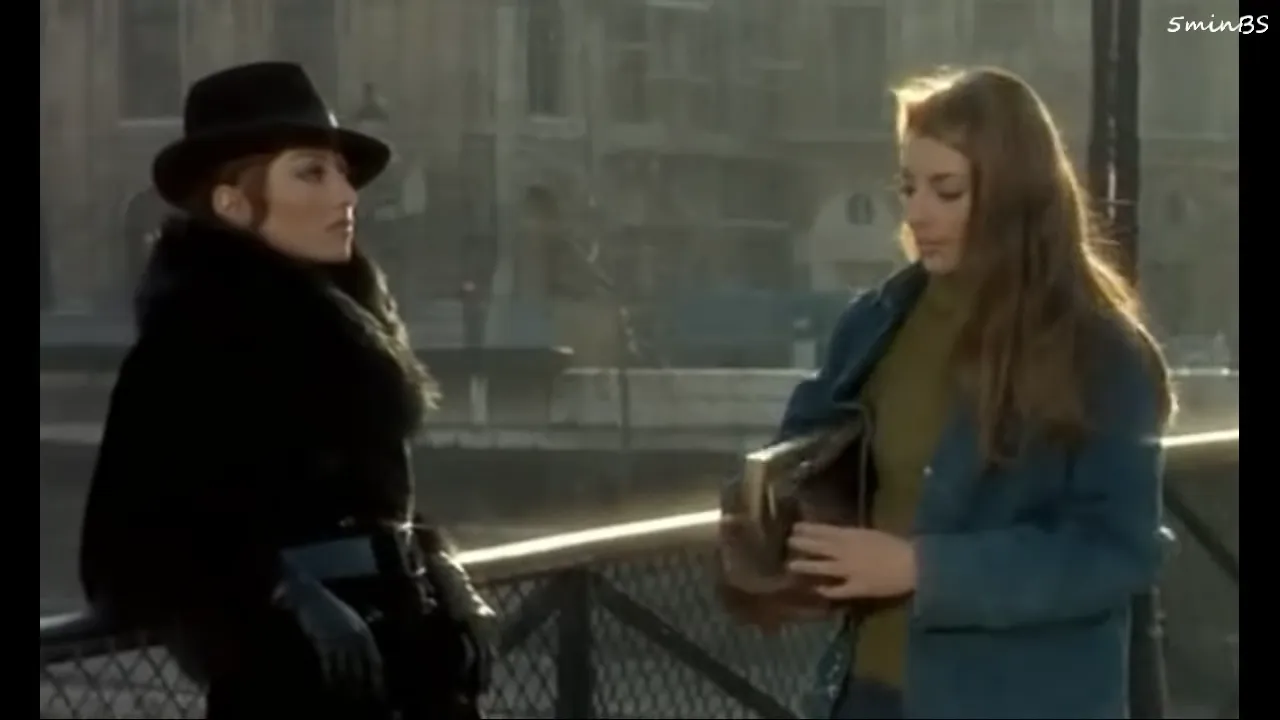
This multilingual lesbian film subtly captures how intimacy can bloom even amid cultural clashes and generational trauma. Nominated for the Golden Bear at the 74th Berlin International Film Festival, it offers a raw yet poetic portrait of young sapphic identity in contemporary Europe.
Les Biches Official Trailer
Frédérique, a wealthy and elegant woman living a life of indulgent boredom, spots a young street artist, Why, drawing on the sidewalks of Paris. Captivated by Why’s uniqueness and quiet beauty, she invites her into her Saint-Tropez villa. What begins as an act of charity quickly evolves into a tangled emotional and sexual relationship.
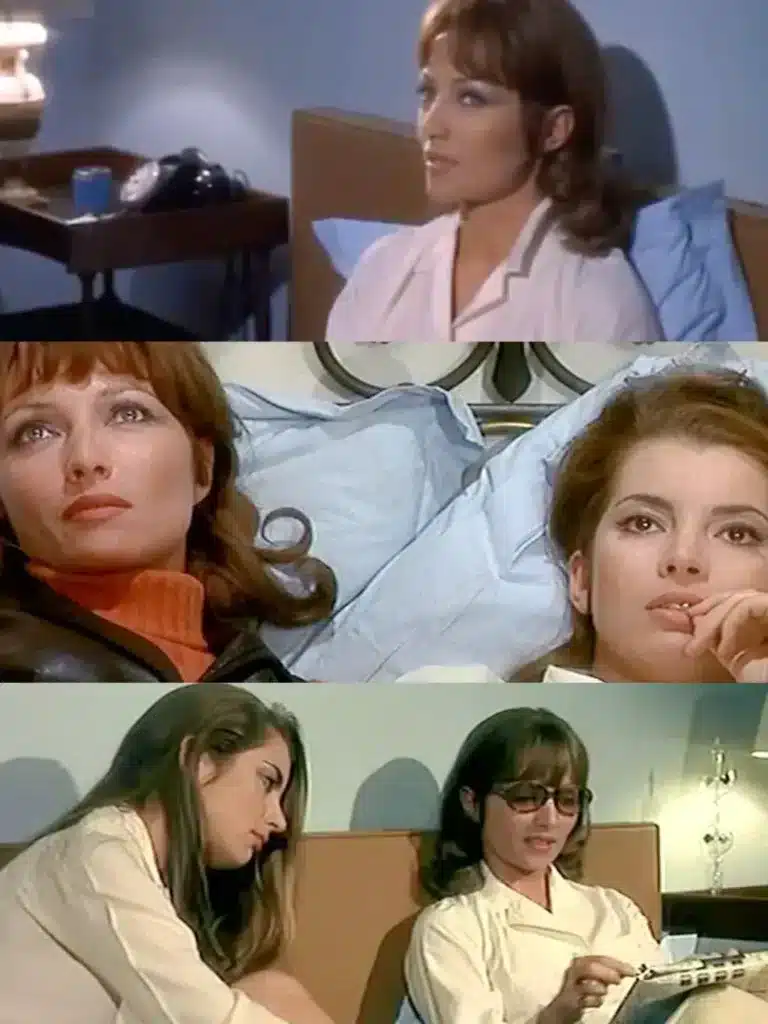
But when Paul, a charming architect, enters the picture and becomes romantically involved with Why, jealousy takes root. Frédérique, unable to bear losing control over Why, seduces Paul herself. The emotional power play escalates until Why, driven by both love and a craving to “become” Frédérique, descends into a chilling act of violence that blurs identity and desire.
Les Biches Cast
Charactor
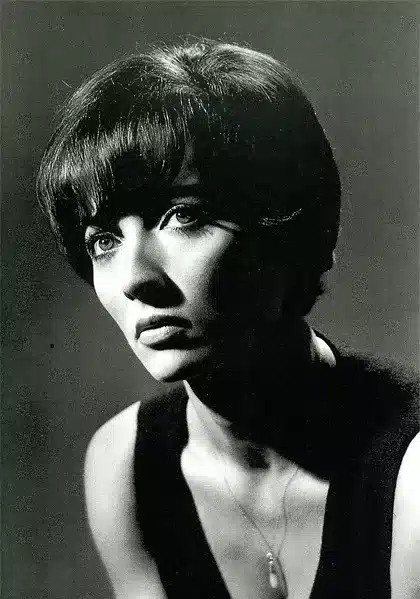
A wealthy, poised woman who becomes emotionally entangled with the much younger Why.
Stéphane Audran
Stéphane Audran was a celebrated French actress and frequent collaborator of director Claude Chabrol, who was also her husband at the time. Known for her composed yet enigmatic screen presence, she won multiple awards throughout her career, including the Silver Bear for this very role.
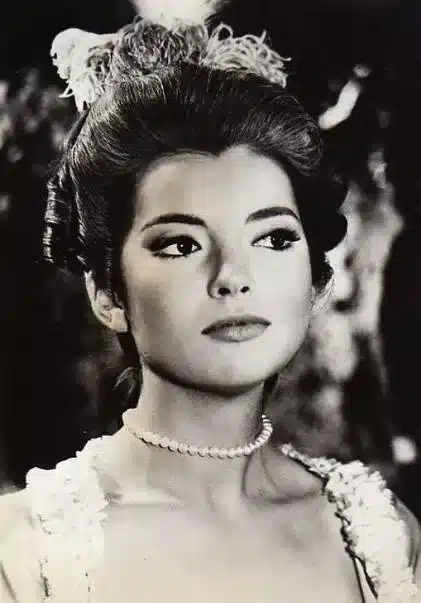
A mysterious street artist with an enigmatic presence and deep emotional volatility.
Jacqueline Sassard
Jacqueline Sassard had a relatively short film career but left a memorable mark in 1960s European cinema. In Les Biches, her haunting stillness and intensity made her portrayal of Why both eerie and tragically compelling.
Director
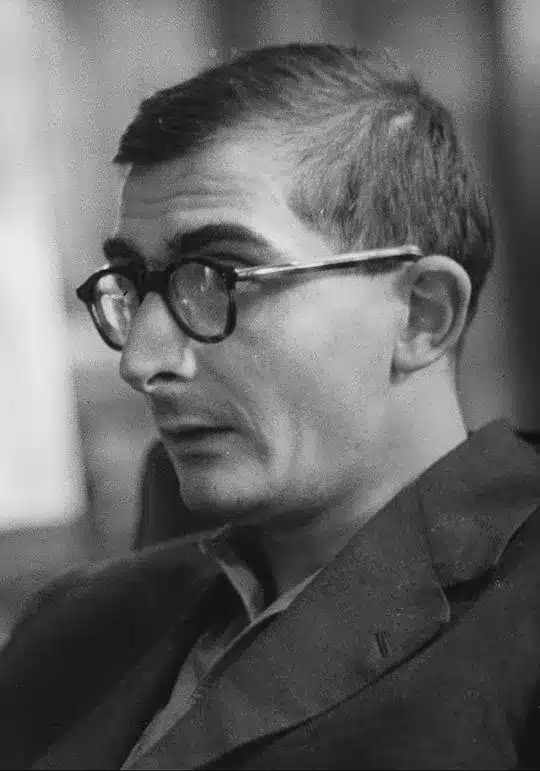
Claude Chabrol
As one of the founding voices of the French New Wave, Chabrol often dissected bourgeois life with cold precision. Les Biches stands as one of his most psychologically complex works, marrying erotic tension with a critique of social decay and emotional possession.
MOVIE HIGHLIGHT
The mirrored scenes where Why tries on Frédérique’s clothes, symbolizing her psychological transformation.
The coffee and sugar moment—a quiet but chilling metaphor for dominance and submission.
The ambiguous final act where Why fully “becomes” Frédérique, including her fashion, speech, and control over Paul.
The tension-filled visual language: mirrors, reflections, slow pans, and eerie silences that signal an impending collapse.
Les Biches Review
Review
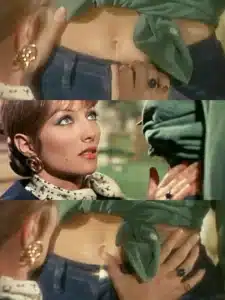
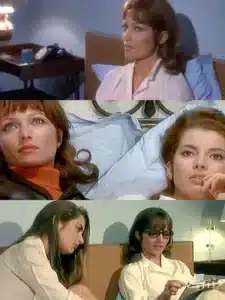


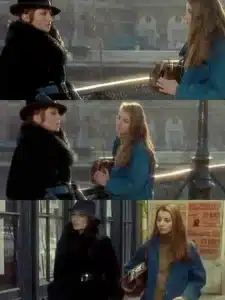

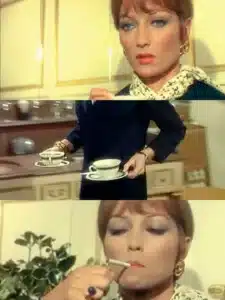
Story (4.5/5):
Les Biches presents a haunting tale of identity mimicry, erotic power struggles, and female rivalry. The story feels deceptively simple but is layered with symbolic undertones—particularly in the character of Why, whose name itself becomes a question of motivation, identity, and existential yearning.
Acting (5/5):
Stéphane Audran gives a career-defining performance as Frédérique, exuding both poise and a quiet menace. Jacqueline Sassard’s portrayal of Why—naïve yet dangerously obsessed—is deeply unsettling and emotionally raw. Their chemistry is subtle, fueled by glances and gestures more than words.
Chemistry (4/5):
Rather than passionate, the connection between the women is psychological—rooted in dominance, mirroring, and deep envy. Their relationship feels less romantic and more like an internal struggle projected onto one another.
Production (4/5):
Chabrol’s Hitchcockian influences are evident in the precise framing, mirror symbolism, and chilling detachment of his storytelling. The soft Riviera aesthetic contrasts the film’s internal coldness, making it all the more disturbing.
Ending (4.5/5):
The final scenes are deliberately ambiguous and eerie, culminating in Why literally “becoming” Frédérique. The open ending invites viewers to confront questions of identity and control—what does it mean to love someone versus wanting to possess them?
Personal Take
This isn’t a typical lesbian film—there’s no joy or liberation in the intimacy shared between the women. Instead, it’s a slow-burn psychological duel. Watching Why slowly unravel and lose herself in the idea of Frédérique is both hypnotic and horrifying. The film captures the shadowy intersection of erotic obsession and personal annihilation, with a feminine sensibility that still feels ahead of its time.
Les Biches Information
🏆 Awards & Recognition
🏅 Silver Bear for Best Actress — Stéphane Audran, 18th Berlin International Film Festival (1968)
